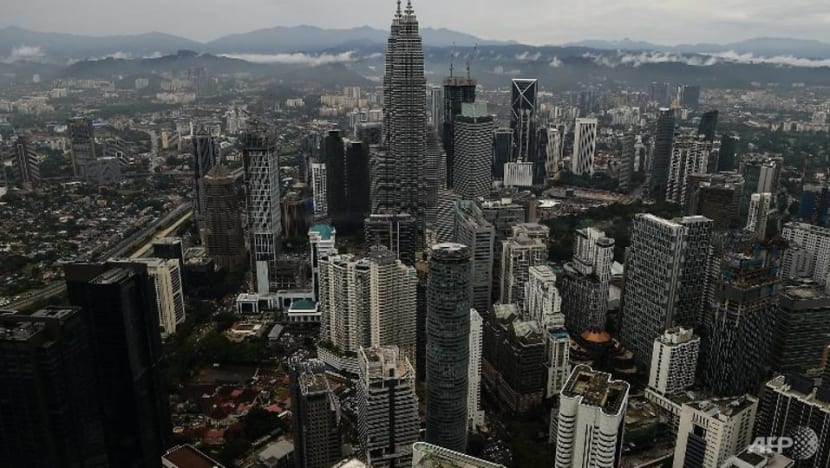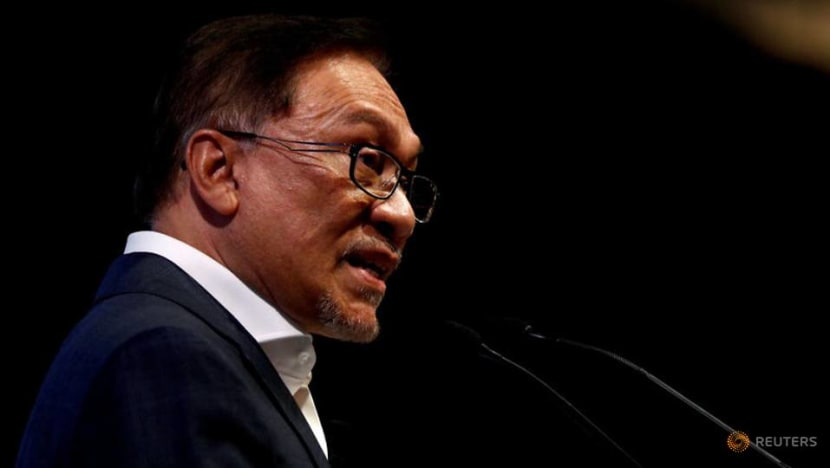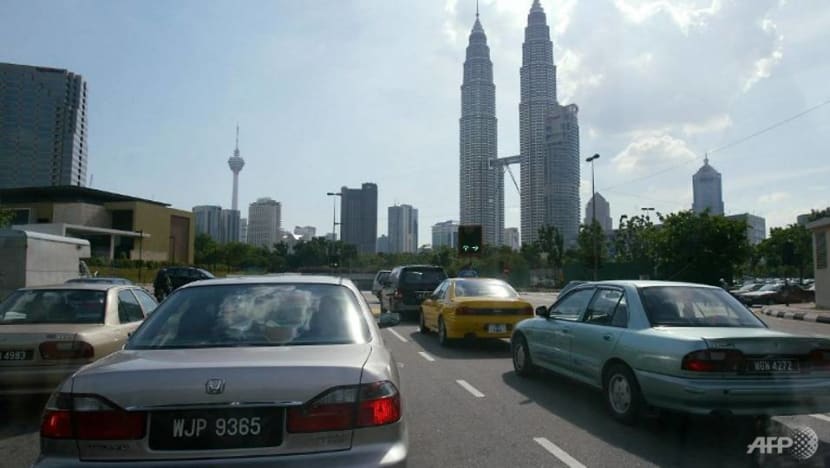commentary Commentary
Commentary: Anonymous letters and whistle-blowers persist in modern day Malaysia
Anonymous letters continue to shine a spotlight on certain leaders and call attention to wrongdoing, which can be a positive development as Malaysian civil society matures, says Khor Yu Leng.

A general view taken from KL Tower shows the Kuala Lumpur city skyline. (Photo: AFP / MOHD RASFAN)
KUALA LUMPUR: In Malaysia, a surat layang or poison pen letter has traditionally been used to draw the attention of a certain person or group to an individual’s alleged wrongdoing.
But it can be a caustic means to self-interested ends. A form of character assassination, this venomous tool has also been commonly used to discredit a person out of jealousy and envy. By the time the truth surfaces, much damage has been done.
Born out of a culture in Malaysia that emphasises maintaining harmonious relationships and being non-confrontational, it is nevertheless a technique used by some to manoeuvre from behind the scenes, wayang kulit-style.
POISON PEN LETTERS
The use of surat layang is notorious in Malaysian politics for this reason. The annual UMNO General Assembly has borne witness to a number of such letters over the years.
1997 was memorable for a barrage of surat layang and self-published books that expounded on claims in such letters.
In one of the most notorious and salacious cases, letters alleging abuses of power and immorality that sought to discredit then Deputy Prime Minister Anwar Ibrahim were circulated, which led to investigations and his eventual sacking.
Such anonymous letters had been the norm then, distributed sometimes at UMNO divisional meetings and general assemblies, and used as a tool to spread politically motivated rumours, to sully an opponent’s reputation and fuel calls for his or her removal given the hard-to-disprove allegations within.
To be sure, these methods are not exclusive to a specific ethnic group or political party. There have been many other lower-profile instances where such underhanded tactics have been employed.
These usually crop up just before state or national elections and are aimed at soiling the reputations of otherwise promising candidates and distracting leaders from campaigning.

One such recent example was PKR’s decision to drop Gan Pei Nei (previously the Rawang member of the Selangor state assembly) as a candidate in last year’s general elections, after a poison letter was circulated implying she had misused funds.
WHISTLE-BLOWING
Still, surat layang can serve constructive ends. It has functioned, for instance, as a common form of whistle-blowing. It allows an informant to disclose wrongdoing without exposing his or her identity.
The anonymous nature of such letters has been crucial in two high-profile cases that made Malaysian headlines over the past year: The murder of army trainee Zulfarhan Omar Zulkarnain at the Universiti Pertahanan Nasional Malaysia (National Defence University) and a sexual harassment case at popular Malaysian business and current affairs radio show BFM 89.9.
In the first case, a fellow student testified in court about sending an anonymous letter to university authorities to alert them of the abuse inflicted on navy cadet officer Zulfarhan, who was beaten and burnt with a steam iron by over 10 students and succumbed to his injuries last June.
More recently, BFM 89.9 made the headlines in January after sacking two employees. The radio station had received anonymous emails alleging sexual harassment, which went viral and were circulated to multiple Malaysian media outlets.
Screenshots of the email contents found their way into Twitter and Reddit. With mounting public pressure, the station had no choice but to launch a formal investigation. They then concluded they had “sufficient evidence” to take action against the two men.
WEAPONISED BY THE INTERNET
Some argue that such letters now play a less important role — or have even died — with the advent of the Internet. But I would argue such letters have morphed to take on more powerful digital forms.

Taking the place of the traditional surat layang is a mushrooming set of satirical blogs and social media accounts, including famed anonymous online portal The Tapir Times, chain messages forwarded via Whatsapp or other chat applications and mass emails sent via throwaway email accounts.
Yet the objectives remain the same: To uncover wrongdoing and draw attention to malpractices.
More recent expose involve the circulation of purported original copies or screenshots of official letters and bank statements on social media platforms such as Facebook and Twitter.
Sometimes, whistle-blowers show who they and put their credibility on the line so as to spur formal investigations.
Former Pandan Member of Parliament Rafizi Ramli has been one such individual, having unearthed a number of inappropriate management of funds including those involving the National Feedlot Corporation, inconsistent impairment of assets reported by the national pilgrimage fund Tabung Haji, and Malaysian government agency Majlis Amanah Rakyat (MARA)’s purchase of properties in Australia.
READ: Looks like regime change hasn’t altered the Malaysian psyche, a commentary
His decision to leak documents and come out strongly against these practices over the last few years have fueled greater scrutiny over government expenditure in Malaysia.
WHISTLE-BLOWING WILL NOT SLOW DOWN
The act of whistle-blowing has not slowed down in Malaysia. Instead, this ethos of speaking up has encouraged more to reach mass media channels.
Also making waves in Malaysia more recently is unease over the lack of transparency of how over more than 30 new Approved Permit (AP) for the import of foreign cars were granted by Malaysia’s Ministry of International Trade and Industry and how these companies were selected, a concern expressed to news outlets.

These anonymous sources who came forward may have been disgruntled at the larger number of APs dished out and had their own agenda.
Still, their comments prompted Trade and Industry Deputy Minister Ong Kian Ming to follow up. He disclosed just this past week that 36 new AP holders were vetted and deemed eligible, and revealed details of the screening criteria employed.
Much as dealing with unhappy voices who choose to remain anonymous can be problematic, there is an upside to this for the Malaysian government. Mr Ong’s comments have helped to shed light on Malaysia’s new open AP policy, rolled out in January, and directly tackled misconceptions over a hot-button issue.
While Pakatan Harapan has complained about internal leaks and alleges an UMNO hand behind these acts, it is worth noting that whistle-blowing had helped the country unearth evidence surrounding the 1MDB scandal and possibly won the Pakatan the seat of government.
MATURING CIVIL SOCIETY
Malaysia’s civil society has come far since the May 2018 General Election, where service delivery and governance lapses are now openly discussed online and private Whatsapp groups have fueled support for causes including saving the Mulu rainforest, Malayan tigers, sensitive sites like the hills of Penang and Ipoh.

In an age where many public and private sector organisations are seeking the wisdom of crowds to solve complex and evolving challenges, a culture of open discussion will help mature civil society and make Malaysia more resilient.
Even topics once thought of as the domain of experts are now open to public debate, as can be seen in Malaysia Securities Commission’s recent solicitation of public comments about regulating bitcoin and property crowdfunding initiatives.
READ: Malaysia goes in search of a more inclusive growth formula, a commentary
How active Malaysians choose to be in the digital age may speak of their confidence in political elites and investigative journalism, and has much to tell us about Malaysia’s political evolution.
And whether they choose to remain anonymous or decide to stake their reputation to come forward and lend their claims greater credibility will be another sign of this maturation of Malaysia’s polity.
Khor Yu Leng is an independent economist at Segi Enam Advisors, and a specialist on the political economy of mobility.












